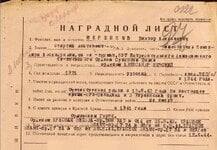There are no assumptions made by the author here. He simply looked at Hartmann's claims and compared them to Soviet losses and saw that Hartmann was far from accurate. The Soviet losses are usually attributed to other pilots. The author found that Otto Fönnekold and Walter Wolfrum were much more accurate than Hartmann since the Soviet losses match their claims most of the time.I do not consider this article to be a serious research—too many assumptions.
"For example, from 12 victories claimed by the CO of 5./JG 52, Otto Fonnekold during the Battle of Yasi, at least 7-8 can be confirmed in Soviet documents, and in other cases the claims could have been achieved by him or other pilots. Walter Wolfrum, CO of 1./JG 52, fought no less effectively on this stretch of the front. Out of 24 claims he made during the week, at least 13-14 can be confirmed."
The author isn't just saying Hartmann is inaccurate for no reason. He gives evidence to prove Hartmann was inaccurate:
Hartmann
A brief summary (Moscow time)
227. 30.05.1944 12:25 P-39 - possible - P-39 of 438 IAP, lt. K. V. Myaskov, baled out
228. 30.05.1944 15:38 P-39 - possible - P-39 of 508 IAP
229. 31.05.1944 19:05 P-39 - overclaim
230. 31.05.1944 19:08 P-39 - overclaim
231. 31.05.1944 19:13 P-39 - overclaim
232. 01.06.1944 12:31 LaGG - overclaim
233. 01.06.1944 12:38 LaGG - overclaim
234. 01.06.1944 15:20 LaGG - possible but unlikely - P-39 of 438 IAP, m. lt. N. T. Motuzko, MIA
235. 01.06.1944 15:30 LaGG - overclaim
236. 01.06.1944 15:32 P-39 - overclaim
237. 01.06.1944 15:35 P-39 - overclaim
238. 02.06.1944 18:10 P-39 - overclaim
239. 02.06.1944 18:15 P-39 - overclaim
240. 03.06.1944 14:30 P-39 - overclaim
241. 03.06.1944 14:33 P-39 - overclaim
242. 03.06.1944 15:00 LaGG - overclaim
243. 03.06.1944 17:17 LaGG - overclaim
244. 04.06.1944 16:10 P-39 - overclaim
245. 04.06.1944 16:25 LaGG - overclaim
246. 04.06.1944 18:13 P-39 - overclaim
247. 04.06.1944 18:23 P-39 - overclaim
248. 04.06.1944 18:53 P-39 - possible, damaged - P-39 of 16 GIAP, m. lt. G. G. Statsenko, slightly injured
249. 04.06.1944 19:15 P-39 - overclaim
250. 04.06.1944 19:18 P-39 - overclaim
251. 05.06.1944 14:12 P-39 - P-39 of 100 GIAP, m. lt. N. I. Zaytsev, survived (?)
252. 05.06.1944 14:19 P-39 - overclaim
253. 05.06.1944 16:15 LaGG - possible - La-5 of 240 IAP
254. 05.06.1944 19:07 LaGG - possible - La-5 of 240 IAP, m. lt. E. A. Karpov, survived
255. 05.06.1944 19:35 P-39 - overclaim
256. 05.06.1944 19:40 P-39 - overclaim
257. 06.06.1944 16:25 LaGG - overclaim
258. 06.06.1944 16:30 LaGG - overclaim
259. 06.06.1944 20:15 P-39 - possible but unlikely - P-39 of 438 IAP, m. lt. A. I. Sopin, survived
260. 06.06.1944 20:25 P-39 - overclaim
261. 06.06.1944 20:35 P-39 - overclaim
In total: 1 confirmed, 7 possible, 27 overclaims
The article also explains why there is an overclaim and so he doesn't just call a kill an overclaim for no reason.


